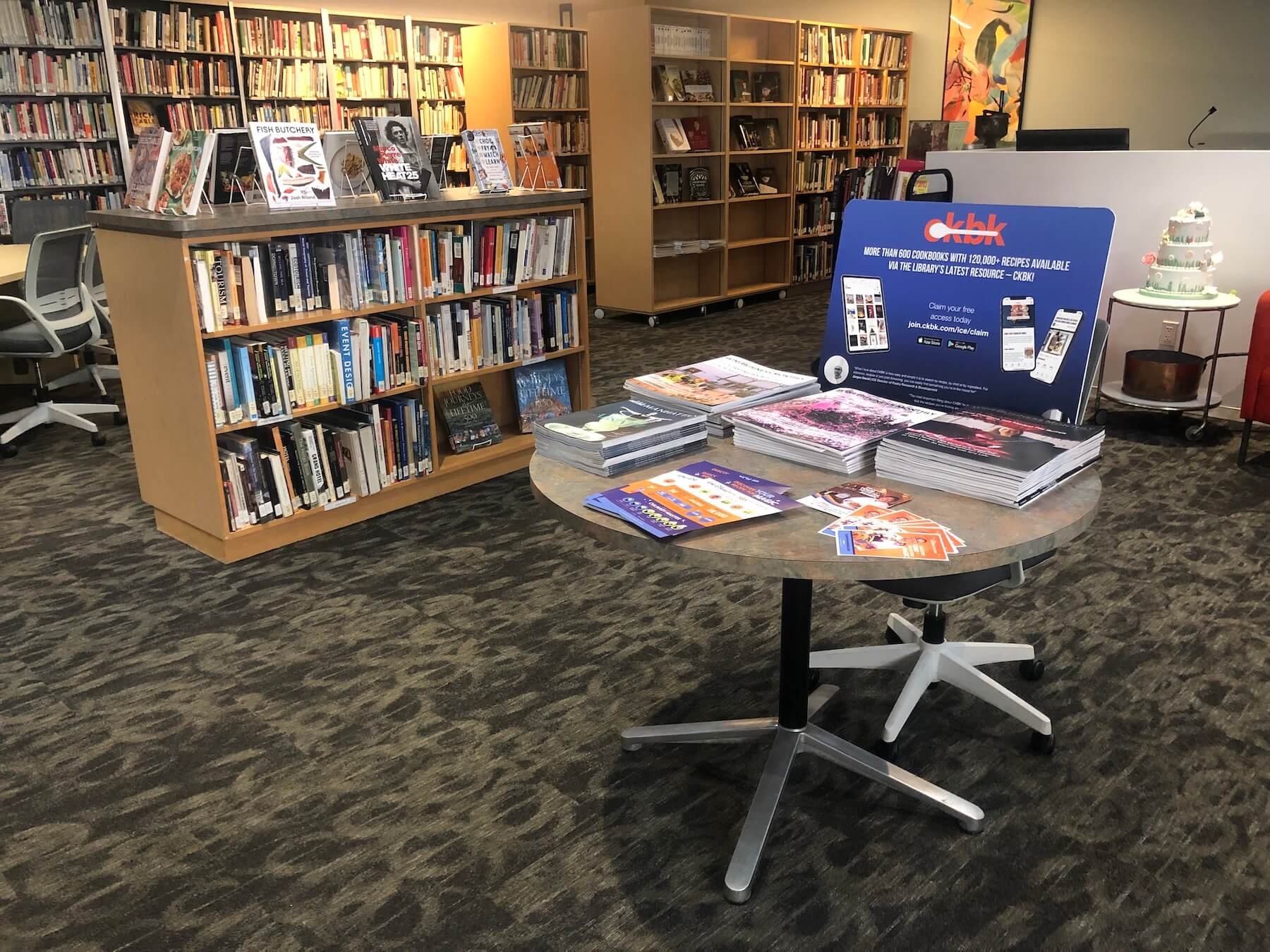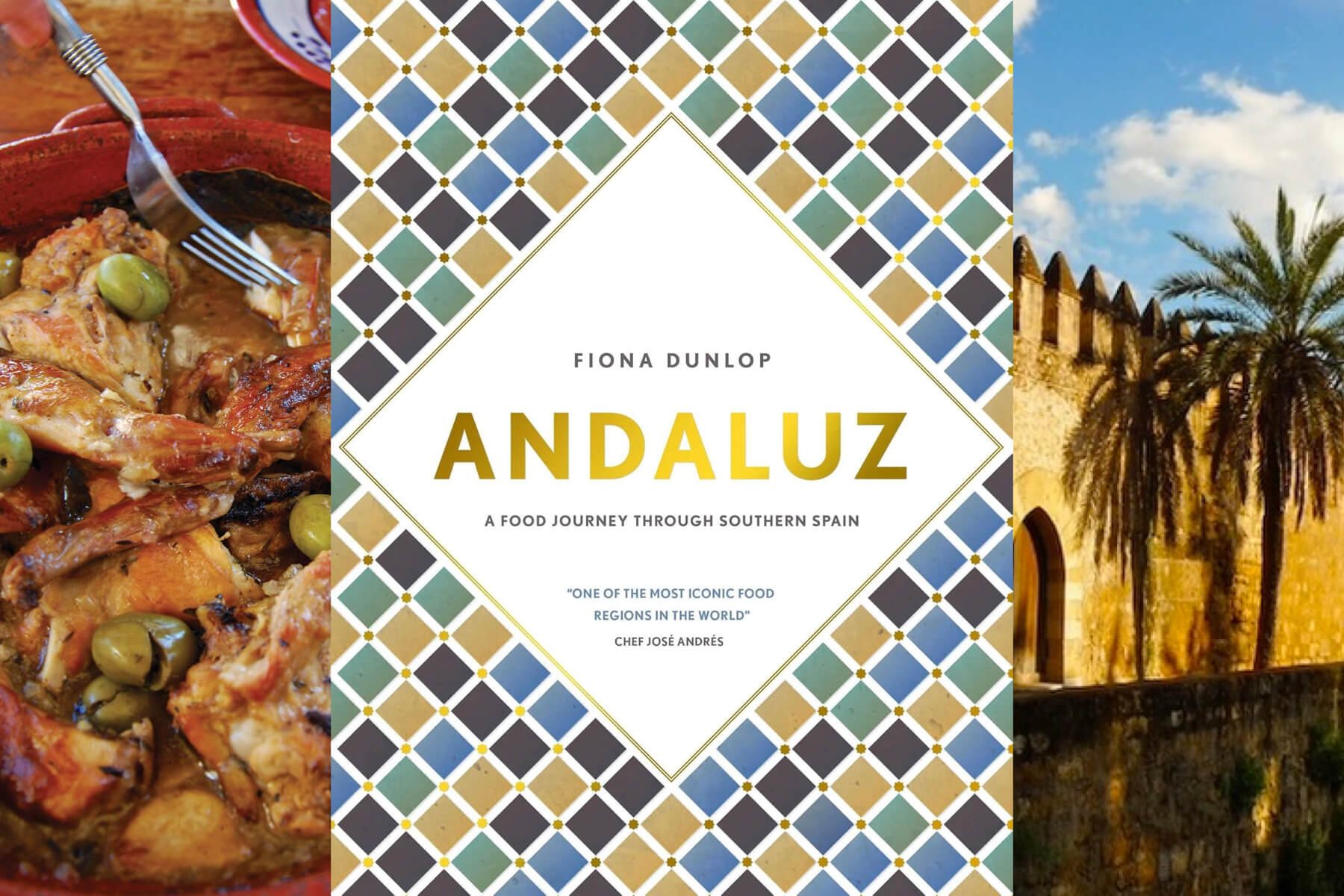Advertisement
A lifetime of learning: ckbk in education
6 November 2024 · Education · Young cooks

The cookbook library at the Institute of Culinary Education in New York City
ckbk has rapidly emerged as a valuable electronic resource for use in culinary schools, technical colleges, university programs, and even high schools.
ckbk’s vast array of recipes, background information on culinary history, in depth technical reference material and global scope have made it a valuable offering which enhances the learning experience of students. Read on to discover some of the ways ckbk is now being used in education.
At the Institute of Culinary Education (ICE), one of the top culinary schools in the United States, ckbk serves as a key resource. Rose Kernochan, the librarian at ICE, recalls her excitement upon discovering the ckbk platform: “ICE’s library is slightly unusual in that it is purely a reference library — in other words, students are not allowed to take the books out. I had previously come from a library where students could checkout and so when I came across ckbk, I was thrilled because ckbk means students can now ‘virtually’ take books and access them from anywhere”.
ckbk is a key part of the ICE library’s offering and Kernochan personally recommends the app to students. “It’s not only for during their course, it is also something that will be useful to them afterwards”, she notes. “ckbk is a tool they can use throughout their career.” [ICE alumni benefit from a special rate when they subscribe to ckbk following graduation.]
ckbk’s ability to put a whole culinary library in your pocket is particularly helpful for those embarking on careers as personal chefs or culinary entrepreneurs, who need access to a wide range of recipes “on the go”. Kernochan mentions one former student in particular for whom ckbk continued to be an especially valuable tool. “She has ended up employed as a personal chef and uses ckbk all the time, researching recipes from her client's kitchen and finding new ones to try,” Rose adds.
Examples of reference works popular with educational users of ckbk

The Oxford Companion to Food by Alan Davidson contains over 3,000 entries on ingredients, dishes, cooking techniques and more

The latest edition of the CIA’s Baking and Pastry is a monumental reference work relied on by countless bakers

Le Guide Culinaire by Auguste Escoffier includes 5000+ recipes and is the ultimate reference on classic French cuisine

Wayne Gisslen’s Professional Cooking covers all the fundamentals that a new chef needs to learn
Brian Neumeyer, a chef instructor at Stratford Public Schools in Connecticut, echoes the benefits of ckbk for his high school students, emphasizing how ckbk opens doors to global culinary knowledge. He describes the platform as a “game-changer,” highlighting that it has encouraged his students to broaden their horizons: “ckbk has opened up a whole world of culinary possibilities and inspires our students to explore new flavors and techniques.” Use of ckbk also plays a crucial role in cultural assignments. “We often use it when students are tasked with finding recipes from specific regions or countries,” Neumeyer explains.

Students developing their skills as part of the Stratford High School culinary program

Over 360 students from Stratford High Schools have used ckbk. Here they are making canapés.
One of the main advantages Neumeyer highlights is the platform's accessibility and searchability which lets students find recipes tailored to their needs and interests, whether that relates to dietary restrictions or specific culinary techniques. “The platform is very user-friendly and the huge selection of recipes make it an invaluable tool for our students. It has really enhanced their culinary education experience,” he says. “ckbk also helps with peer-to-peer learning, as students share their discoveries and insights with one another.”

Each year students at Bunnell High School (part of the Stratford High Schools system) cook a special meal for veterans, using ckbk to help research and develop the menu.
At Oxford Brookes University in the UK, ckbk is an important resource for the institution’s hospitality program, but is also used by the library more broadly to encourage students across campus to build their cooking skills and to develop healthy eating habits. Isabel Virgo, a librarian at Oxford Brookes, explains: “For everyday student use, ckbk is very convenient. Students can access a very wide range of recipes, and the capability to filter recipes by dietary requirements is especially useful,” she says. ckbk is particularly valuable for students living away from home for the first time, as they search for simple, affordable recipes.

Shakshuka with Baked Eggs by Prue Leith and Peta Leith from The Vegetarian Kitchen (part of the ckbk collection 'Easy Meals for College & University Students’)
Oxford Brookes is responsible for an important collection of historically significant food and drink books and associated archival material, including the personal libraries of celebrated chefs such as Jane Grigson, Antonio Carluccio and Ken Hom, authors whose books are either already on ckbk (Ken Hom, Jane Grigson) or are in the process of being added (Antonio Carluccio). Beyond this, ckbk provides access to books and recipes from every era including the latest contemporary trends, and regional recipes from all over the globe. “Our subscription to ckbk has allowed us to move recipe books from the main shelving in our library, freeing up valuable space. Some of these printed books have gone on to have a second life in our Special Collections,” Virgo notes.
Students participating in the Oxford Brookes’s hospitality program especially benefit from ckbk’s wealth of resources on high-end cuisine including books by Michelin-star chefs. ckbk’s emphasis on seasonal recipes and ingredients also resonates, “I really like ckbk’s strong seasonal focus which contributes towards sustainability in food supply chains,” Virgo adds.
The Pearson School of Culinary Arts (PSCA) in Montreal takes an even more structured approach, integrating ckbk closely into its vocational chef-training programs. Chef instructor Oliver Harding explains that students are familiarized with ckbk at the outset of their training. “We introduce the platform on day one and show them how to register, sign up, and how to search for specific recipes,” he says. The platform is particularly useful in the ‘Menu Planning’ competency and during the ‘Recipe Development’ and ‘Recipe Standardisation’ phases of the ‘Market Fresh’ program at PSCA. Students are able to explore a wide array of diverse recipes, finding inspiration for their culinary creativity and development.

Spicy, garlicky, lemony, herby sardines on toast by Signe Johansen (part of the ckbk collection 'Easy Meals for College & University Students’)
One of the key advantages for Pearson students is the convenience of accessing ckbk from any device, whether that be a phone, tablet or laptop. “It saves them carrying a two kilogram book around everywhere with them!”, say Harding. No longer limited by physical space constraints, ckbk has allowed the school to expand its virtual cookbook and recipe library exponentially.
The examples above showcase just some of the educational institutions which are already benefiting from access to ckbk. In higher education, prominent universities such as UCLA, UCSD and NYU are also using ckbk as a resource to support teaching and research in Food Studies and in many other academic disciplines which an overlap with food, including agriculture, nutrition, anthropology and cultural studies.
Whether it’s providing high school students with access to global cuisines, freeing up space in a university library, or acting as source of inspiration to help chefs in vocational training with their recipe development, ckbk is empowering the next generation of chefs and hospitality professionals. Each organization uses the platform in its own way, but the core of ckbk’s offering remains the same — easy access to the very best that the culinary world has to offer.
For more information on how ckbk can support culinary education and food-related studies at your school, college or university (including details of discounted pricing for departmental and campus-wide subscriptions) contact education@ckbk.com.
More ckbk features
Find out how to customize ckbk to your suit your needs, including choosing between Metric and US measurements
Ramona Andrews speaks to John Ash, the James Beard Award-winning cookbook author
Fiona Dunlop shares the story of her travels through the restaurants of southern Spain researching this passion project
Advertisement



